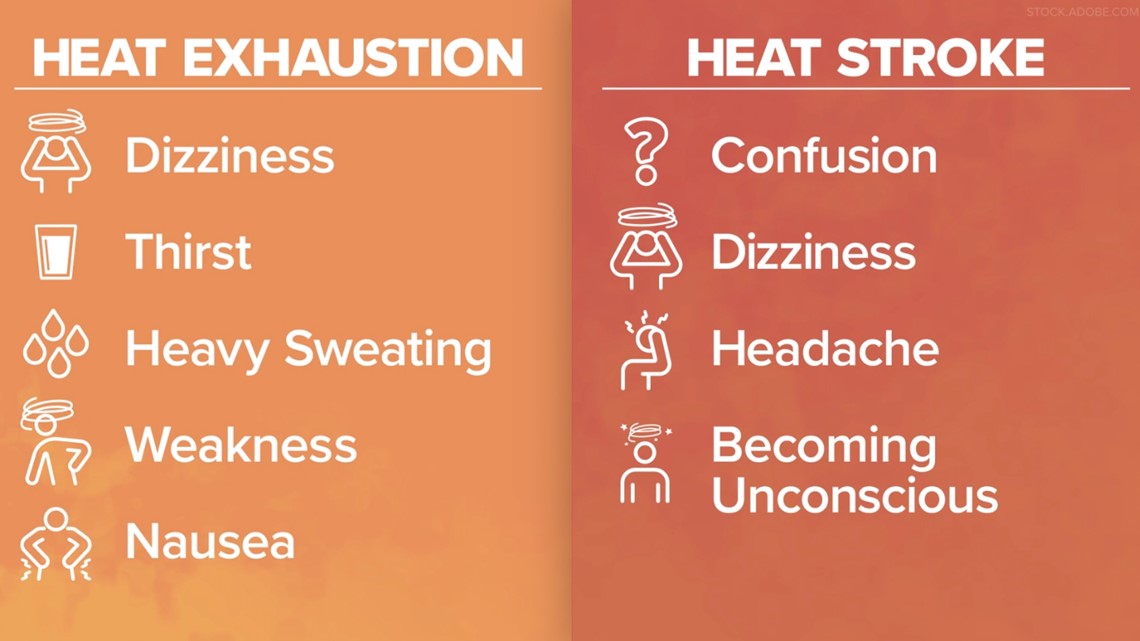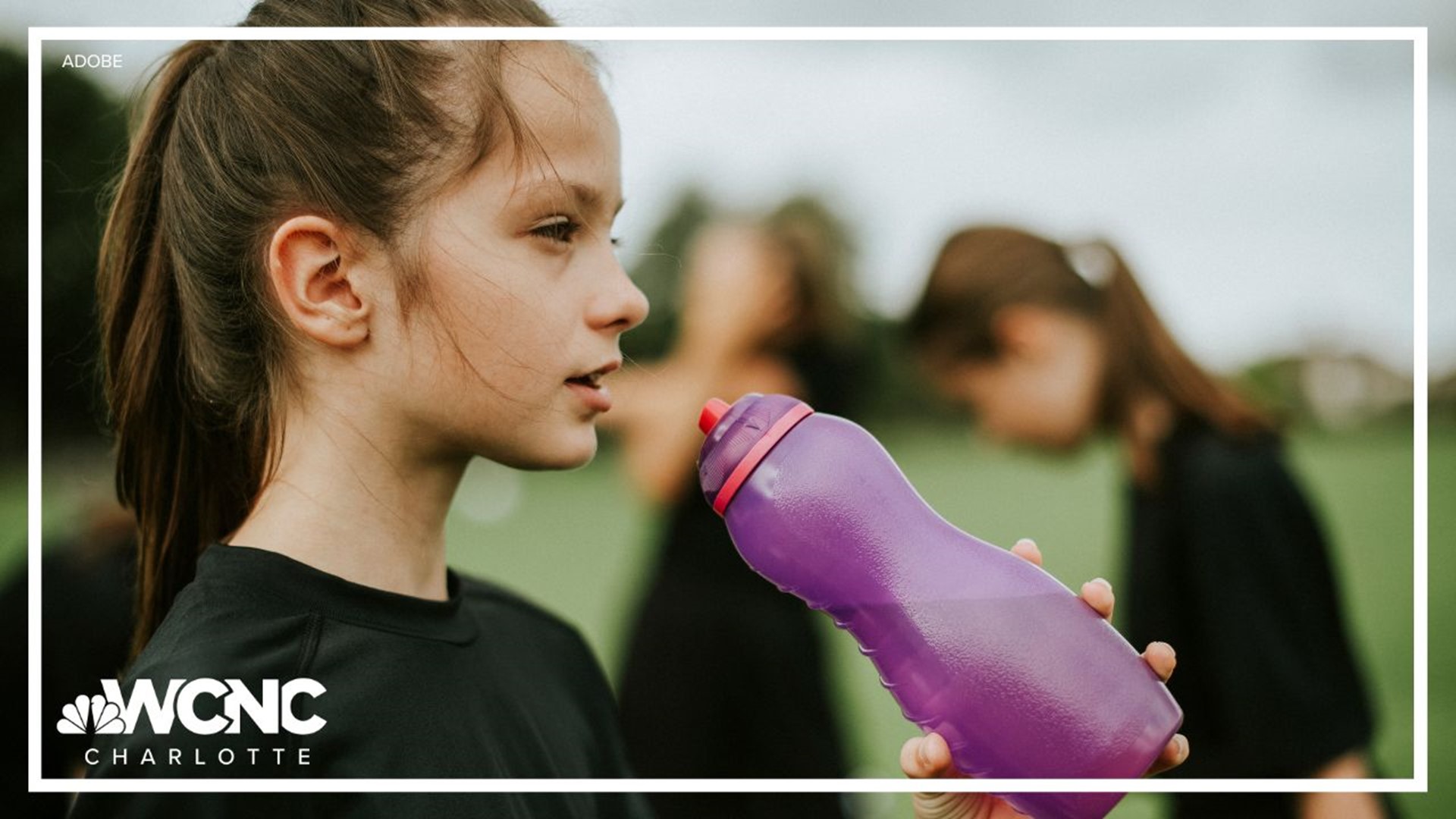CHARLOTTE, N.C. — While children and the elderly are the most susceptible to heat-related illnesses, anyone can be affected by heat exhaustion or heat stroke. There are few similarities between the two, but many key differences that tell the difference between “let's cool you down” and “let's get you to a hospital."
Heat stroke: Warning signs
Many heat-related illnesses can be avoided. Prevention is key: spending time indoors (preferably in the air conditioning), taking breaks in the shade, drinking plenty of water, and avoiding the hottest part of the day. However, here are some distinguishing characteristics to keep in mind.
According to the CDC, heat stroke is a medical emergency. Here's what to look out for:
- A body temperature of 103 degrees or higher
- Hot, red, dry, or damp skin
- A fast, strong pulse
- Nausea
- Headache
- Dizziness
- Confusion
- Losing consciousness
If you or a loved one is suffering from heat stroke, you should call 911 immediately. Move the person to a cooler place and try to lower their body temperature with cool compresses or a cool bath. Key importance with heat stroke: do not give the person anything to drink.


Heat exhaustion: Warning signs
If you think someone is suffering from heat exhaustion, look for:
- Excessive sweating
- Cold, pale, and clammy skin
- A fast, weak pulse
- Nausea or vomiting
- Muscle cramps
- Tiredness or weakness
- Dizziness
- Headache
- Fainting
Get the person to a cooler place and try to loosen their clothes. Put cool, wet cloths all over their body and get them into a cool bath. It’s also a good idea to sip water.
Although heat exhaustion is not a medical emergency, you should seek immediate medical treatment if the person begins to throw up, symptoms get worse, or the symptoms last longer than an hour.
Contact Brittany Van Voorhees at bvanvoorhe@wcnc.com and follow her on Facebook, Twitter and Instagram.
WCNC Charlotte’s Weather IQ YouTube channel gives detailed explainers from the WCNC Charlotte weather meteorologists to help you learn and understand weather, climate and science. Watch previous stories where you can raise your Weather IQ in the YouTube playlist below and subscribe to get updated when new videos are uploaded.

